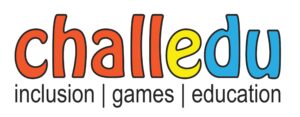
pICTureURpath: Fostering gender balance in pursuing ICT related studies and professions
The “pICTureURpath” project aims to identify the key factors and actors that influence girls’ aspirations in pursuing Information and Communications Technology (ICT) studies and professions in Europe, with the scope to design a pedagogical framework for secondary pre-service and in-service teachers and non-formal educators, and pilot-experiment an intervention for proposing policy recommendations that have high potential for increasing the number of girls whose career choice or learning pathway leads to an ICT field. The project was inspired due to the low percentage of women involved in the ICT field and the need that this field has for innovation driven by the different perspectives that gender balance will bring.
Objectives
Τhe specific objectives of the project pICTureURpath are:
- Support mutual learning and exchange of good practices within stakeholders in the field.
- Identify the key factors (institutional, cultural, socio-economic) and actors (parents, peers, career counselors, teachers, non-formal educators, role-models, policy makers, community) that influence girls’ aspirations in pursuing ICT studies and professions.
- Develop a gender-responsive pedagogical framework for digital skills and competences in secondary education.
- Enhance awareness and build the capacity of in-service and pre-service teachers in secondary education and non-formal educators.
- Pilot the project’s policy intervention aiming at increasing girls’ aspirations in pursuing ICT studies and professions in Europe.
- Produce policy recommendations and engage policy makers across the EU in discussions on scalability, transferability, and impact of the proposed intervention.
Results
- A community of practice in international level with in-service and pre-service teachers from secondary schools, non-formal educators, parents, professionals of NGOs working on gender equality, policy makers, role models in ICT, or other relevant professionals, to actively take part in the consultations and discussions about the framework of the piloting policy intervention.
- A document with policy recommendations that could be addressed at European and national level.
- Workshops with the community of practice.
- Examples of lesson plans based on partners schools’ curricula.
- Short guidebooks, posters, and promo videos for the key actors of the community.
- A series of extracurricular activities.
- Posters and infographics with recommendations to empower the enhancement of gender equality in ICT.
- Increase of interest of girls in ICT by 15%.
The following organisations are involved in the project:
The coordinator:
Partners:
- Challedu (Greece)
- University of Groningen (Netherlands)
- Be an Ally Foundation (Cyprus)
- Regional Directorate of Primary and Secondary Education of Central Macedonia (Greece)
- Quality Culture (Italy)
The project is co-funded by the European Commission, under proposal number 101195875.
